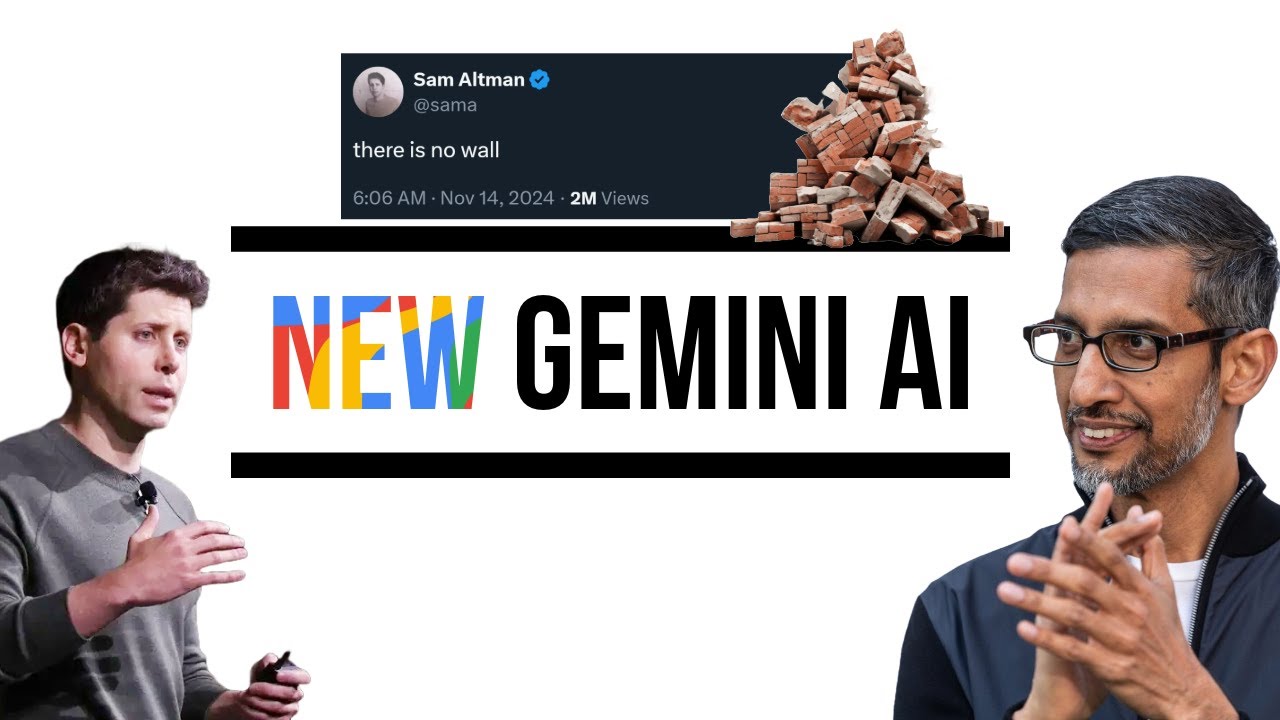The video discusses Google’s new Gemini model, which has been ranked as the number one language model based on human preferences, but it reveals significant flaws and limitations that drop its ranking to fourth place when assessed more objectively. Additionally, the presenter highlights ongoing technical difficulties with the Gemini API, concerns about its emotional intelligence, and a broader trend in AI development where traditional scaling methods are yielding diminishing returns, necessitating new approaches for future advancements.
The video discusses Google’s new Gemini model, which has recently been ranked as the number one language model in a human preference leaderboard. However, the presenter emphasizes that this ranking does not necessarily indicate that Gemini is the best model overall, as it has significant flaws and limitations. The video highlights that the ranking is influenced by human preferences for longer and more elaborate responses, which can skew the results. When controlling for these factors, Gemini drops to fourth place, indicating that it may not perform as well as competitors like OpenAI’s GPT-4 and Anthropic’s Claude 3.5 in more objective assessments.
The presenter notes that Google is currently facing technical difficulties with the Gemini API, which has hindered comprehensive testing of the model. Despite the excitement surrounding its release, the lack of benchmarks and performance metrics raises questions about the model’s capabilities. The video also mentions that Google had initially intended to label this new model as Gemini 2.0, but internal reports suggest that the performance improvements have been disappointing, leading to uncertainty about its naming and classification.
In terms of emotional intelligence, the presenter argues that Google’s models, including Gemini, lag behind competitors. They provide examples of Gemini’s responses to sensitive topics, which lack the nuance and empathy displayed by Claude. This raises concerns about the model’s ability to handle emotionally charged interactions effectively. The video also touches on the limitations of Gemini’s token count, suggesting that it may be a sign of a larger underlying issue with the model’s architecture and computational efficiency.
The discussion extends to the broader landscape of AI development, highlighting that all leading companies, including OpenAI and Anthropic, are experiencing diminishing returns in model performance. The presenter cites reports indicating that OpenAI’s upcoming GPT-5 model may not meet the ambitious performance targets set by the company. This trend suggests that the era of simple scaling may be coming to an end, and that new paradigms and innovative approaches are needed to drive further advancements in AI.
Finally, the video concludes by emphasizing that while the Gemini model’s release may seem anticlimactic, it reflects a larger trend in AI development where traditional scaling methods are no longer sufficient. The presenter believes that improvements in AI will continue, but they will become more unpredictable and require new strategies. The video also touches on the ongoing discussions within OpenAI regarding the path to artificial general intelligence (AGI) and the challenges that lie ahead in achieving this goal.
